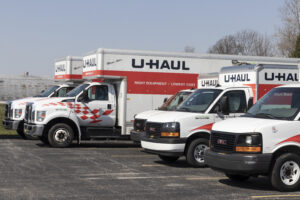Navigating the aftermath of a car accident is a challenging ordeal, and it can become even more complex if the vehicle involved was an uninsured U-Haul truck. In such a situation, you may be wondering what your legal options are and what kind of compensation you can receive.
What Are Some Relevant Laws in Nevada?
In Nevada, the laws governing your case would largely depend on the specifics of the accident. Generally, if an uninsured U-Haul truck hit you, the primary course of action would be to file a claim against the driver. However, if the driver is an employee of U-Haul, it may be possible to bring a claim against the company directly.
Nevada law requires all drivers to carry liability insurance. If the driver of the U-Haul failed to meet this requirement, they could be personally responsible for any damages caused by the accident. But if the driver was acting within the scope of their employment for U-Haul when the accident occurred, the company could potentially bear responsibility under a legal principle known as “respondeat superior.”

Respondeat superior, a Latin phrase that translates to “let the master answer,” is a doctrine that can hold employers accountable for the actions of their employees while they are performing job-related duties.
This means that if the U-Haul driver was on the clock or fulfilling a task for the company at the time of the collision, U-Haul may be liable for the damages caused by their employee. Navigating this complex legal landscape requires a thorough understanding of Nevada’s specific laws and regulations, highlighting the importance of consulting with an experienced Nevada personal injury attorney.
How Big of a Settlement Can I Win?
The amount of compensation you can receive will depend on the specific circumstances of your case. In general, you may be able to receive compensation for:
– Medical expenses: This includes any medical bills you incurred as a result of the accident, including hospital stays, surgeries, and rehabilitation.
– Lost wages: If you were unable to work due to your injuries, you may be able to receive compensation for the wages you lost.
– Pain and suffering: This includes compensation for the physical and emotional pain you experienced as a result of the accident.
– Property damage: If your car or other property was damaged in the accident, you may be able to receive compensation for the cost of repairs or replacement.
The amount of compensation you can receive will depend on the severity of your injuries, the extent of your property damage, and other factors. An experienced lawyer can help you determine the appropriate amount of compensation to seek and can negotiate with the insurance company or the other party to ensure that you receive a fair settlement.
What Is the Statute of Limitations in Nevada?
The statute of limitations is the time limit within which you must file a lawsuit. Specific to Nevada, this time limit is two years from the date of the accident. This means that if you’ve been involved in a car accident or have sustained injuries in a similar incident, you have precisely two years from the date of the incident to initiate a lawsuit. If you don’t file within this period, you risk forfeiting your right to seek legal compensation for your injuries.
Given the time-sensitive nature of these cases, it’s crucial to consult with an experienced Nevada personal injury lawyer as quickly as possible following your accident. Doing so will help ensure you don’t overlook any crucial deadlines. Your lawyer can assist you with various aspects of your case, from gathering and preserving vital evidence to negotiating with the insurance company, or the driver of the U-Haul. If required, they can also guide you through the process of filing a lawsuit within Nevada’s specific legal timeline.
How Can an Experienced Lawyer Help?
An experienced lawyer can help you navigate the legal process and ensure that you receive the compensation you deserve. Your lawyer can:
– Investigate the accident: Your lawyer can gather evidence, interview witnesses, and reconstruct the accident to determine who was at fault.
– Negotiate with the insurance company or the other party: Your lawyer can negotiate with the insurance company or the other party to ensure that you receive a fair settlement.
– File a lawsuit: If necessary, your lawyer can file a lawsuit on your behalf and represent you in court.
– Provide legal advice: Your lawyer can provide you with legal advice and guidance throughout the process to ensure that you make informed decisions.
If you were hit by a U-Haul truck with no insurance, call High Stakes Injury Law at (702) 605-6671 for a free case evaluation. Your lawyer can help you understand your legal options and ensure that you receive the compensation you deserve.




